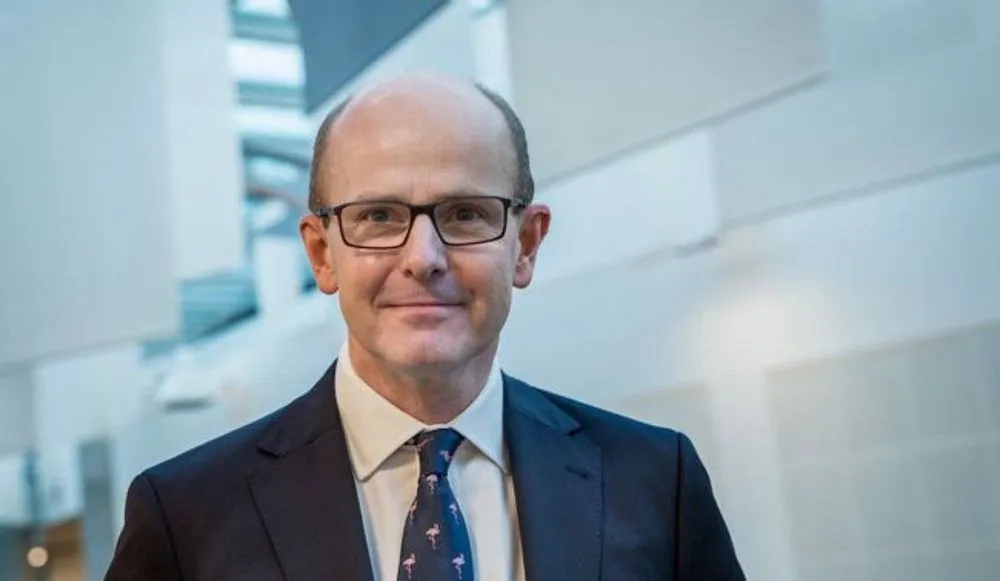Britain’s cyber intel agency GCHQ to start search for new director as Fleming signals departure
GCHQ, Britain’s cyber and signals intelligence agency, is searching for a new director, following the announcement on Thursday that Sir Jeremy Fleming would be leaving.
In a statement, the agency said: “In line with normal practice, there will be an internal civil service competition to identify a successor. Sir Jeremy and the Board will continue to lead and oversee work at GCHQ until the summer.”
Fleming has been in the role as GCHQ head for almost six years, assuming the office in April 2017. His official page credits him with leading “a significant period of growth” at the agency — citing the opening of a new secure facility in Manchester, as well as the launch of the National Cyber Force. He also championed a “focus on diversity and inclusion.”
Since the agency was founded in 1919 — initially under the name of the Government Code and Cypher School — it has had 16 chiefs, all of whom have been men. The Record’s sources, who are not directly involved in the recruitment process, said there is a feeling that the next director should be a woman.
Officially, the director of GCHQ is appointed by the foreign secretary, although a recent rewrite of the recruitment process allows the prime minister to veto a proposed candidate and have the process re-run. The job listing is not publicly available but is circulated among a restricted group including senior intelligence community officials and police chiefs.
GCHQ’s emphasis on diversifying its ranks under Fleming’s watch attracted politically-motivated criticisms of the focus as “woke” — including from government ministers. The United Kingdom’s security and intelligence agencies regard diversity as a competitive advantage over foreign adversaries.
The same is true in the United States where the veteran intelligence analyst Richards Heuer, in his CIA-published book “Psychology of Intelligence Analysis,” stressed the risks of cognitive biases undermining intelligence work: “Optimal results come from alternating between individual thinking and team effort, using group interaction to generate ideas that supplement individual thought. A diverse group is clearly preferable to a homogeneous one.”
Jo Cavan, GCHQ’s director of strategy policy and engagement, explained to The Guardian that the agency has found that counterterrorism mission teams with more of a gender balance ultimately do a better job keeping the country safe. “That’s why we talk labour diversity as being mission critical,” she said.
The agency's efforts to ensure women are represented across its workforce has also led to two working mothers job-sharing the role of deputy director for counter terrorism, with each putting in 28 hours per week.
It was “one of the first jobshares in an operational intelligence position at this level,” the agency stated, adding “its success has enabled GCHQ to model top-level flexible working to the workforce, setting the example of what’s possible.”
“At GCHQ, we’ve come a long way but we have more to do,” Fleming said in a statement on the agency’s external careers site. “We are committed to attracting a workforce that represents the country we serve. We’re interested in your potential, not which school or university you attended. We know that a mix of minds makes us stronger. Maybe one day you’ll join us.”
As the director — responsible for the overall running of the organization — Fleming was one of the few GCHQ staff whose names are publicly known. Subordinate to him are four directors general, responsible for the agency's main areas, including ‘Intelligence and Effects’, ‘General Technology’, and ‘General Strategy’ — whose identities and genders are not generally known — and the chief executive of the National Cyber Security Centre, a public-facing role held by Lindy Cameron.
Fleming joined the agency having previously been the deputy director general of the U.K. Security Service, traditionally known as MI5. Intelligence in-the-knows have tipped as one of his potential successors the current Deputy Director General at MI5, who is a woman.
MI5, which focuses on counter-intelligence and domestic security, has previously had two women as its director general, Baroness Eliza Manningham-Buller and Dame Stella Rimington. Its foreign intelligence counterpart, MI6, has only ever been led by men.
A female intelligence officer quoted in a recent feature article in the Financial Times, covering the “secret lives” of women working for MI6, said: “There is no line of business that needs difference of perspective more than ours does. There’s never one perfect way of doing something. We need more women. We need more ethnic minorities. We need more people who have come up through completely different social routes.”
Alexander Martin
is the UK Editor for Recorded Future News. He was previously a technology reporter for Sky News and a fellow at the European Cyber Conflict Research Initiative, now Virtual Routes. He can be reached securely using Signal on: AlexanderMartin.79



